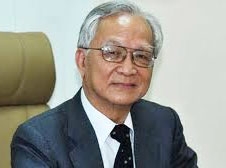QE3 can’t be ignored by Vietnam
 The US Federal Reserve (FED) just launched QE3, under which each month the FED will pump $40 billion into the market, making efforts to ease unemployment, stimulate demands and resume production. What is your view about its overall impacts?
The US Federal Reserve (FED) just launched QE3, under which each month the FED will pump $40 billion into the market, making efforts to ease unemployment, stimulate demands and resume production. What is your view about its overall impacts?
QE3 is a monetary policy package introduced by FED paving the way for US firms to access lending with lowest possible interest rates to resume growth.
From 2000 up to now around 50,000 US enterprises shut up shop due to implications of tariff liberisation as US goods could not compete with cheap imported items, particularly those from China.
The labour cost in the US is extremely high at around $20 per hour against $6-8 per hour in China and Vietnam. Thereby, it is likely that albeit US government pumps money with low interest rates into the economy US firms will use that money to invest elsewhere with lower production costs like China and Vietnam.
Over the past decade US firms created few new jobs in the domestic market. They mainly ran production in countries with cheap labour costs. Therefore, monetary policy package like QE3 alone cannot break the impasse in US economy as the core of the problem is excessively high labour costs there.
This means QE3 impacts on Vietnam’s economy, particularly on exports, which will not be as bright as some experts earlier suggested?
The QE3 package will fail to address the impasse inside the US economy, thereby consumers will possibly continue tightening their pulse-strings.
However, Vietnam’s modest export value to the US market of above $10 billion per year will not be affected.
To step up exports to the US, local firms need to gradually reduce the volume of consumer goods and shift into food and agricultural products in which we have advantages.
Besides, promoting direct exports to US market is important to boost exports to supersede export through intermediaries in China, Hong Kong or Singapore like the case at present.
What are the major benefits QE3 can bring Vietnam?
It brings an opportunity to woo investment from the US. As I stated above, albeit FED rolled out this stimulus package US firms may not borrow to channel into production in home market, but will bring cash flow to outbound locations with cheaper labour costs and transparent and open management to invest.
The question is whether Vietnam is in a position to attract this capital.
I think the potential for our country to lure US investors is big but we could miss out the opportunity if our management system lacks transparency, labour skills remain low and corruption keeps raising its ugly head.
The US law is severe. A US firm director could be jailed if being detected to bribe local officials.
QE3 was believed by some to cause US dollars to depreciate and drive up inflation concerns which resulted in galloping gold prices in the recent past. Is that the case?
The recent soaring gold price mainly stemmed from global economic vulnerabilities, making bullion a safe shelter. Its impact on the exchange rate is also insignificant.
From 2008 until present the US administration continually printed money, but the exchange rate did not change much and inflation did not shot up. That was because US government did a smart job with controlling cash flows into the economy.
In Vietnam, exchange rate heavily relies on policies. If trade deficit remains high and lending rates stay above 15 per cent per year, firms will still be in a fix, causing dong currency to depreciate and pilling pressures on gold and exchange rate situation.
What the stars mean:
★ Poor ★ ★ Promising ★★★ Good ★★★★ Very good ★★★★★ Exceptional
 Tag:
Tag:
Related Contents
Latest News
More News
- Hermes joins Long Thanh cargo terminal development (February 04, 2026 | 15:59)
- SCG enhances production and distribution in Vietnam (February 04, 2026 | 08:00)
- UNIVACCO strengthens Asia expansion with Vietnam facility (February 03, 2026 | 08:00)
- Cai Mep Ha Port project wins approval with $1.95bn investment (February 02, 2026 | 16:17)
- Repositioning Vietnam in Asia’s manufacturing race (February 02, 2026 | 16:00)
- Manufacturing growth remains solid in early 2026 (February 02, 2026 | 15:28)
- Navigating venture capital trends across the continent (February 02, 2026 | 14:00)
- Motivations to achieve high growth (February 02, 2026 | 11:00)
- Capacity and regulations among British areas of expertise in IFCs (February 02, 2026 | 09:09)
- Transition underway in German investment across Vietnam (February 02, 2026 | 08:00)




















 Mobile Version
Mobile Version